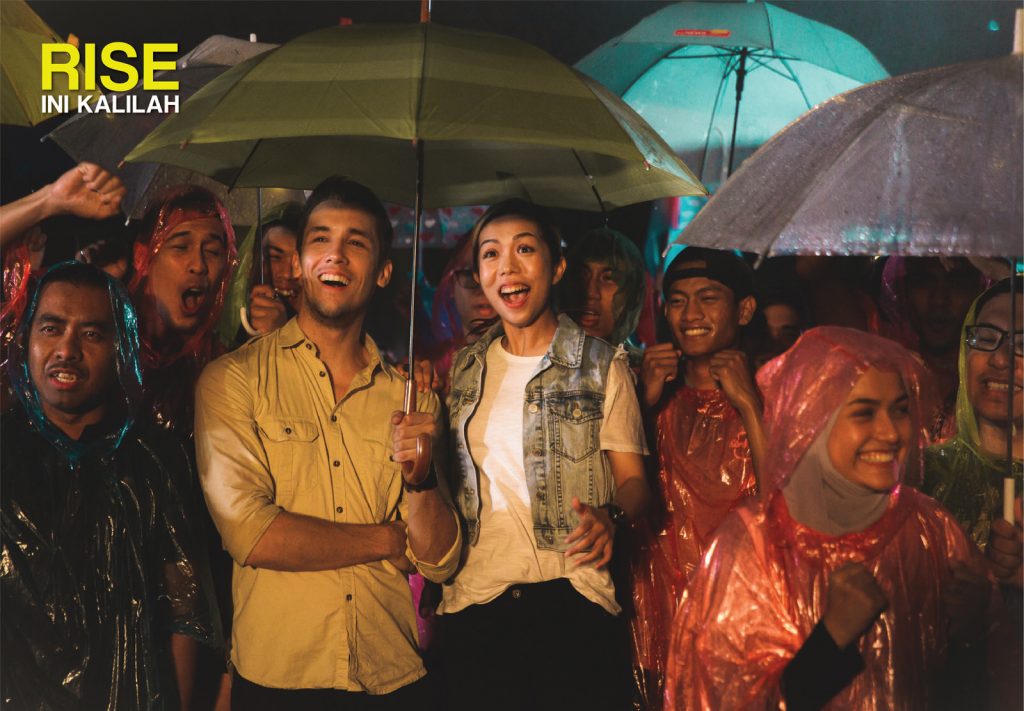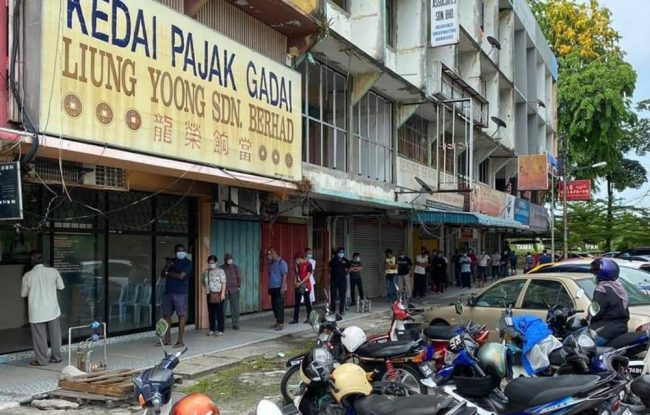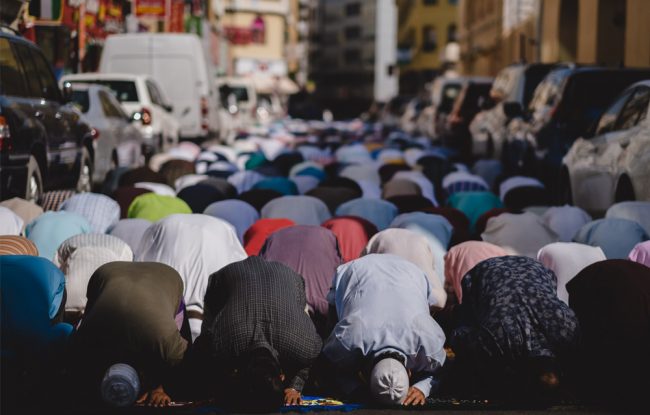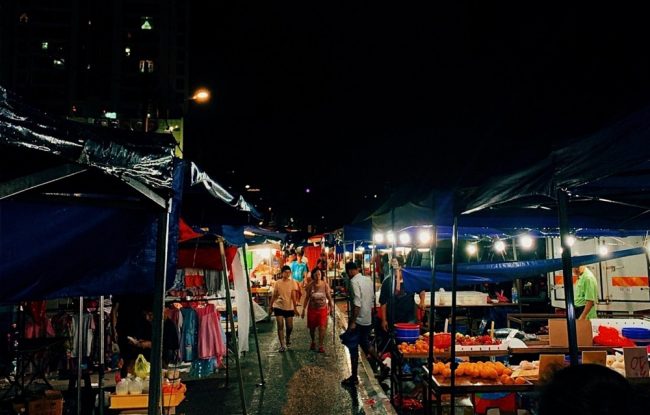My GE14 story involved volunteering as a PACA to safeguard the electoral process. Others I have talked to would have their own stories to tell; some just talked about the long queues at polling centres, others lamented that it inconvenienced their plans to watch a concert later that night, and there were of course a few that did not bother to even register. I won’t vilify or celebrate these individuals because they each had their own reasons for doing so. Either way, they would all have some profound negotiation with the events of May 9th; great satisfaction, boundless optimism, deep skepticism, or eternal regret. A movie that focused purely on May 9th and explored these themes would have been my ideal GE14 movie, its central theme being about how the combined small efforts of people can have a big impact for the whole nation.However, my story is by no means unique, nor is it especially extraordinary. By now, most Malaysians I know have had a special, personal story about the GE14 just like I. But it will always be how I remember my own personal role in this election; I chose to be a PACA this round, but others did other things in GE14 that unique to them. The agency for Malaysians in this election includes more than just heading to the ballot boxes such as #undirosak or paying for others to travel home. As you’re reading this, you’re probably reminded of what you did. GE14 has imprinted in every Malaysian a certain history that is etched in stone and will be forever remembered by this generation.

Image Credit: riseinikalilah.com
Enter Rise: Ini Kalilah, a new film from the director trio of Saw Teong Hin, Nik Amir Mustapha, and M S Prem Nath, on the recently concluded Malaysian elections. The first Malaysian feature film on elections (aside from Fahmi Reza’s 10 tahun sebelum merdeka) and it should be commended for that. The film focuses on 6 main characters from different walks of life, who through some bizarre turn of events, end up at the same polling centre for an explosive finale. Each character has a series of trials that they inevitably overcome and rise to the occasion. It is an election film about the people on the ground and unfortunately it fails in that regard; most of the characters did not actually seem interested in the elections and were just reacting to the situation presented to them. This is completely at odds with how the upset in the elections took place.
The film celebrates seemingly fantastical actions by the main characters where in actual fact it was the combination of small efforts all over the country that led to this upset. This is why:
Malaysians who participated in the elections effected a change of government not because a PACA chastised a phantom voter or an angry mob prevented a car with fake ballots from entering, but rather the collective efforts of all Malaysians to head to the polling centres and place their votes. With a turnout of more than 80%, Malaysians were the engine behind this regime change that was peaceful, systematic and without violence. All this was achieved despite the previous government’s underhanded tactics to steal the elections including gerrymandering, malapportionment, campaign restrictions and having the elections on a weekday.
This fantasy retelling of a very recent event will be either be reviled for distorting their truths or create false memories in others. As a PACA myself, the PACA scenes were rife with inaccuracies and were a gross over-dramatization of their actual roles. I’m sure others would have equally dissonant experiences watching their own stories being told in a bizarre fashion. There is a great danger in falsely aggrandizing the events of GE14 improperly as we are still living through the effects of that election.
The most exciting part of the GE 14 elections wasn’t the long lead up to it nor the incredibly short campaign period. It was the election day itself. It was a most exciting 24 hours as there was a roller coaster of emotions as the seat counts were released, with rumours of recounts, election officials refusing to sign the final documents, change in seat compositions, and the delay in announcing PH’s win. A movie like this should be made to celebrate the people involved, that Malaysians watching it can see themselves in these roles but instead are presented with perversions of their efforts.
Entertainment media serve as a snapshot and reflection of a time period based on how it projects people, societies, and cultures. Often implicit, these subtleties hint at underlying issues that influence the way people think about engaging with greater issues. A film like this, appears to reflect a BN-era media regime where politics are never discussed and the government cannot be criticised. The media space in this country has been reborned, growing to develop in new ways previously unheard off. For a film that celebrates this newfound freedom, it fails to venture out into any new territory.
“New Malaysia” did not just yield a new government, but a new beginning for all Malaysians. While no one actually knows what “new” actually means, it really is up to us to define it for ourselves. In my interactions with people in the last few months, there has been an increase in political awareness and participation than ever before. People are eager to be involved in the country’s affairs and want to be informed about the affairs of government. This film attempts to deal with a historical political event, but it is incredibly disappointing to see it address the politics in a non-committal and almost lackadaisical manner. Being political does not mean having to side with a political party but just engaging with issues that affect Malaysians at large. Thus, filmmakers should take this as a call to action to become more politically aware and address bigger issues in their films.

Image Credit: riseinikalilah.com
Rise: Ini Kalilah is not a movie that I can recommend to anyone as it is not an accurate nor appropriate representation of GE14. This was not meant as a review of the film as there are other reviews that would talk about the film’s technical qualities and other attributes, but I am specifically concerned about the portrayal of the election. I would use this film as an example of the old BN-era regime filmmaking that needs to be done away with. Malaysian films need to raise their game, they need to raise bigger questions, bigger issues, bigger concerns as the Malaysian public are now yearning for more. I would urge other filmmakers to produce films that engage with a more enlightened audience because you don’t have to worry about government retribution anymore. Rise: Ini Kalilah will not stand the test of time as a good or accurate film about GE14, but my hope is that it would be the last BN-era film. And that would be a title that I would love to apply to this film.
Benjamin Loh is an avid scholar, part-time writer, and all-time computer gamer. From his love of computer games and visual media such as films and television, he has always had an interest in understanding how media technologies shape the cultures of people that use them which in turn changes society at large.
His current PhD research looks at how pirated media affects how regular people make sense of their media and how it affects their use of it. By understanding how Malaysians make sense of their use of media, Benjamin believes that will reveal better insights into contemporary society that will eventually bridge the digital divide of privilege.
This is the opinion of the author and does not necessarily represent the views of IMAN Research.




